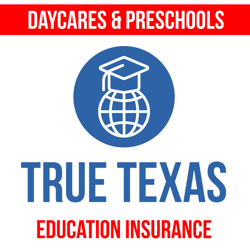
1. An Audit Is Standard, Not a Punishment
When Raul first saw the words “audit notice,” his mind jumped straight to the IRS. He imagined stacks of paperwork, investigators asking questions, and hidden penalties waiting to crush him. But an insurance audit is not about punishment. It is about policy period reconciliation.
At the beginning of a policy year, your premium rates are based on projected revenue and payroll. The insurance company uses those numbers as a premium basis because they cannot predict the future. At the end of the year, they check what actually happened while the policy is in force.
- Did your revenue go up or down?
- Did payroll change?
For liability insurance, they care about your revenue because it reflects how many children are in your care and how much risk exposure you carry. For workers' compensation, they care about payroll because that reflects how many staff members are at risk of injury on the job. The audit simply matches estimates against reality.
When Raul understood that, he felt some relief. This was not a penalty. It was an adjustment that can sometimes even work in his favor if the premium audit discovers lower numbers than expected.
2. Accurate Records Make the Process Easier
The audit request in Raul’s email listed the financial records he would need to provide. Payroll data summaries. Tax documents. Revenue statements. At first, it looked overwhelming. But he soon realized that he already had most of it.
The insurance company was not asking for anything unusual. They wanted the same QuickBooks reports he used for taxes and bookkeeping. By gathering them quickly and sending them promptly, he could make the process shorter and less painful.
The lesson here is simple. Daycare owners who keep accurate, organized employee records breeze through audits. Those who scramble, dig through piles of paper, or hand over incomplete numbers feel the pain and potentially raise red flags with insurance carriers.
Raul’s bookkeeper helped him pull the financial records in a couple of hours. The fear that had knotted his stomach began to loosen.
3. Premiums Can Go Up or Down
Raul assumed that an insurance premium audit only meant bad news. Higher bills. More stress. Less money to go around. But the truth is more balanced.
If his revenue had increased during the year because enrollment grew, his general liability premium would likely go up. If his payroll increased because he added staff, his workers compensation insurance premium would also rise. That part he expected.
What he did not realize was the other side. With standard insurance or private insurance companies, if enrollment had dropped or payroll had shrunk, his premiums could actually go down. That was a breath of fresh air to him.
Insurance companies do not automatically cut your bill in the middle of the year when numbers shift. But if you are doing a mid-year premium audit with your experienced daycare insurance agent, they can make sure you aren't overpaying the second half of the year.
During this mid-year process, Raul discovered that one of his policies had been overpriced based on estimates from the year before. His operations data allowed the adjustment to be made on the fly.
The big takeaway for you is an audit can hurt or help. It depends on the numbers, not just the process.
4. Cooperation Matters
When the auditor emailed Raul with a few clarifying questions, his first instinct was frustration. He wanted to ignore it, hoping the whole thing would go away. But his agent reminded him that cooperation matters.
If you respond promptly, provide clear records, and show transparency, the insurance carriers see you as professional and reliable. If you delay, dodge questions, or hand over sloppy records, they may view you as a higher risk. That perception can affect future underwriting or even your eligibility for certain types of policies.
Raul decided to lean into the process. He answered quickly, sent extra details when asked, and kept communication polite and professional. By the time the audit file closed, the underwriter’s notes reflected confidence in his daycare’s operations. That reputation mattered as much as the numbers.
5. Planning Ahead Can Save You Money
The biggest lesson Raul learned came at the end of the process. He realized that adjusting his numbers proactively during the year can avoid the shock of a correction.
An experienced daycare insurance agent can review your enrollment and payroll mid-year. If your numbers are trending down, you can request adjustments before the audit. That way you are not overpaying all year or waiting for a refund if it is offered. If your numbers are trending up, you can budget for a larger premium instead of being blindsided later.
Raul also learned that audits are predictable. They come at the end of every policy year. By preparing his records, updating his numbers, and talking with his agent ahead of time, he could walk into the next one with confidence instead of fear.
The Real Lesson Raul Learned
When Raul first opened that email, panic set in. The words “notice of audit” felt like a threat. But as he went through the process, he saw it differently. An insurance audit is a tool. It matches reality to estimates. It ensures that your premium rates reflect the true size of your business. It gives you a chance to show underwriters that your daycare is well run.
What started as a knot in his stomach ended as a lesson in preparation and partnership. Raul walked away with a clearer view of his finances, a tighter process for his records, and a stronger relationship with his insurance specialist.
Protecting Your Daycare Through Certainty
Daycares in Texas face enough uncertainty already. Enrollment shifts. Staff changes. Economic pressure builds. Insurance should not be another source of anxiety.
That is why True Texas Education Insurance was created. Built specifically for daycare centers, preschools, and after-school programs. Our unique program helps you prepare for audits, manage premiums, and secure coverage that truly protects your business.
You do not have to dread that audit contact. With the right planning and the right agent, you can turn it into just another step in the rhythm of running your daycare.
👉 Click the button below to talk with a Texas-based daycare insurance expert today and make sure your next audit brings peace of mind instead of panic.



